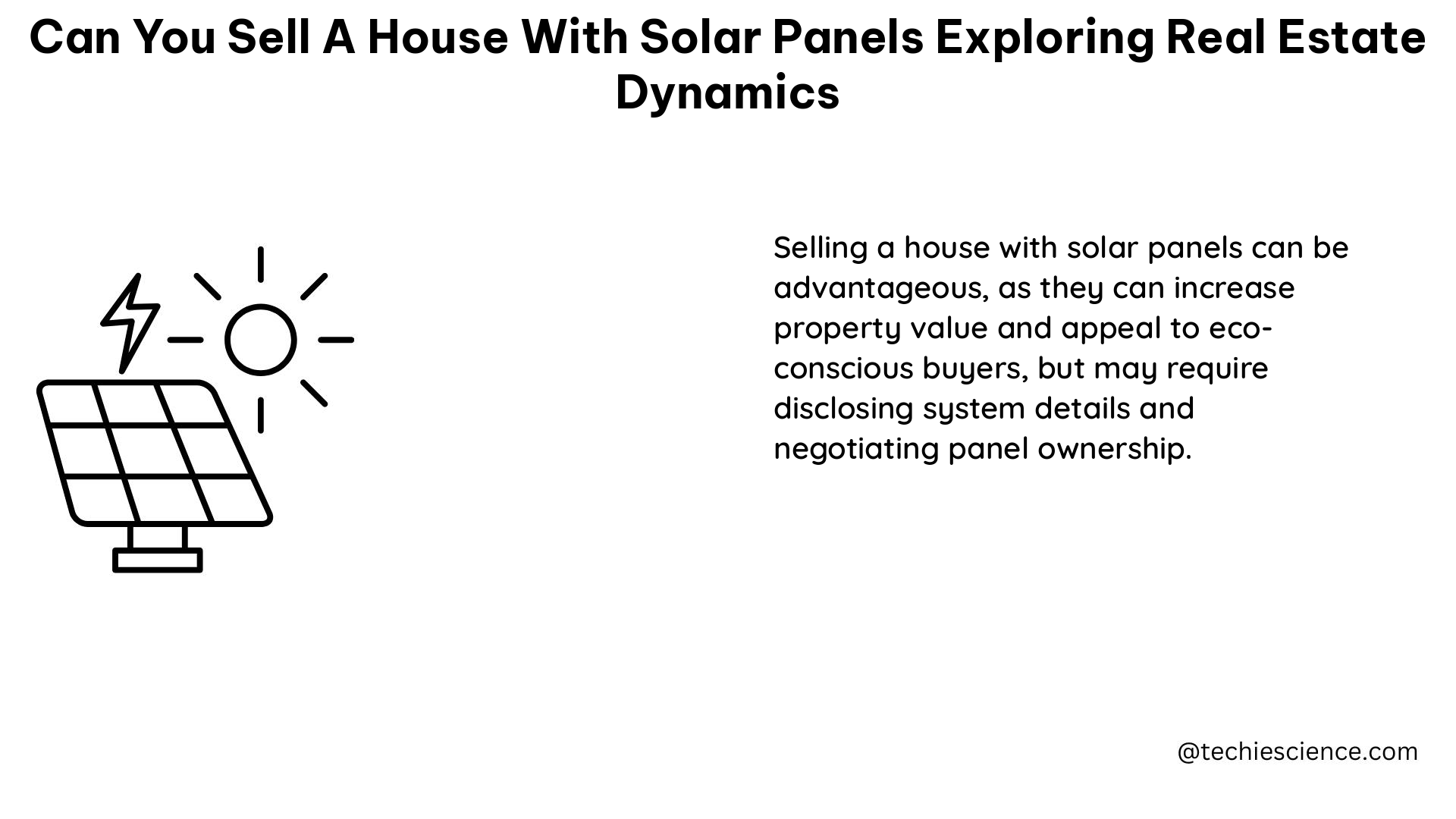When selling a house with solar panels, there are several measurable and quantifiable benefits that can make the property more attractive to potential buyers. From increased home value to faster sales and reduced carbon footprint, solar-powered homes offer a range of advantages that can significantly impact the real estate market.
Increased Home Value: The Solar Premium
According to a study by Zillow, homes with solar panels sold for an average of 4.1% more than similar homes without solar power. This means that for a $400,000 home, installing solar panels could potentially increase the selling price by over $16,000. The solar premium can vary depending on factors such as the size and efficiency of the solar system, the local real estate market, and the buyer’s perception of the value of renewable energy.
Faster Sales: The Solar Advantage

Homes with solar panels tend to sell faster than those without. Research from the Department of Energy suggests that houses equipped with solar power tend to sell significantly faster compared to their non-solar counterparts. This can be attributed to the growing demand for sustainable and energy-efficient homes, as well as the financial benefits that solar panels offer to homeowners.
Lower Electricity Bills: The Solar Savings
By generating their own clean energy, homeowners with solar panels can significantly reduce their reliance on the traditional power grid, leading to lower electricity bills and long-term financial savings. According to a study by the National Renewable Energy Laboratory (NREL), the average homeowner with a solar system can save between $10,000 and $30,000 on their electricity bills over the lifetime of the system.
Reduced Carbon Footprint: The Solar Sustainability
Solar panels can help homeowners reduce their carbon footprint and contribute to a more sustainable future. According to the Environmental Protection Agency, the average residential solar system can offset as much as 80,000 pounds of carbon dioxide over its lifetime. This environmental benefit can be a significant selling point for eco-conscious buyers.
Incentives and Rebates: The Solar Savings Boost
Homeowners who install solar panels may be eligible for various incentives and rebates, such as the federal Investment Tax Credit (ITC), which can help offset the cost of installation and make the property more attractive to buyers. The ITC currently offers a 26% tax credit for solar systems installed in 2022, and this credit is scheduled to decrease to 22% in 2023 and 0% for residential systems in 2024.
Factors Affecting Solar Value in Real Estate
The value of solar when selling a home can vary depending on several factors, including:
- System Size: Larger solar systems with higher energy production capabilities can command a higher premium in the real estate market.
- System Age: Newer solar systems with longer remaining warranties and higher efficiency tend to be more valuable.
- Financing: Homes with solar systems that are fully owned (rather than leased) can be more attractive to buyers.
- Local Regulations: The rules and incentives surrounding solar energy in the local real estate market can impact the value of solar-powered homes.
- Buyer Preferences: The level of interest and demand for solar-powered homes in the local market can influence the solar premium.
Maximizing Solar Value When Selling
To maximize the value of solar when selling a home, homeowners can consider the following strategies:
- Highlight the Solar Benefits: Clearly communicate the financial and environmental benefits of the solar system to potential buyers.
- Provide System Details: Offer detailed information about the solar system, including its size, efficiency, and performance history.
- Emphasize Ownership: If the solar system is fully owned, make sure to highlight this fact, as it can be more attractive to buyers.
- Time the Sale: Consider selling the home during periods of high demand for solar-powered properties, such as when local incentives are available.
- Work with Solar-Savvy Agents: Collaborate with real estate agents who have experience in marketing and selling solar-powered homes.
By understanding the dynamics of the real estate market and the value of solar power, homeowners can effectively position their solar-equipped properties to attract a wider pool of potential buyers and potentially increase the selling price.
Conclusion
Selling a house with solar panels can offer a range of benefits, from increased home value and faster sales to lower electricity bills and a reduced carbon footprint. By leveraging the measurable advantages of solar power and working with knowledgeable real estate professionals, homeowners can maximize the value of their solar-powered properties and make them more appealing to eco-conscious and financially-savvy buyers.
References:
- Has anyone ever sold their house while solar was still on it?
- Using Data Analytics to Show the True ROI of Residential Solar Investment
- Why Buy or Sell a Home with Solar Panels?
- Selling a House with Solar Panels
- Value when selling home

The lambdageeks.com Core SME Team is a group of experienced subject matter experts from diverse scientific and technical fields including Physics, Chemistry, Technology,Electronics & Electrical Engineering, Automotive, Mechanical Engineering. Our team collaborates to create high-quality, well-researched articles on a wide range of science and technology topics for the lambdageeks.com website.
All Our Senior SME are having more than 7 Years of experience in the respective fields . They are either Working Industry Professionals or assocaited With different Universities. Refer Our Authors Page to get to know About our Core SMEs.